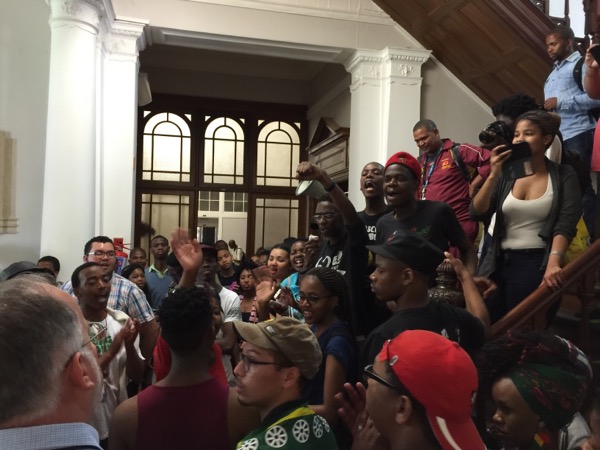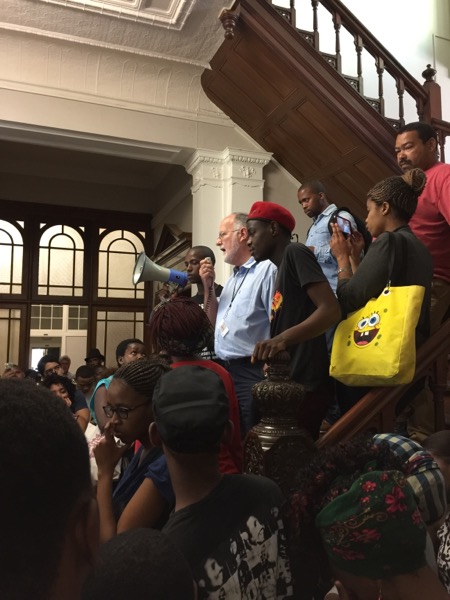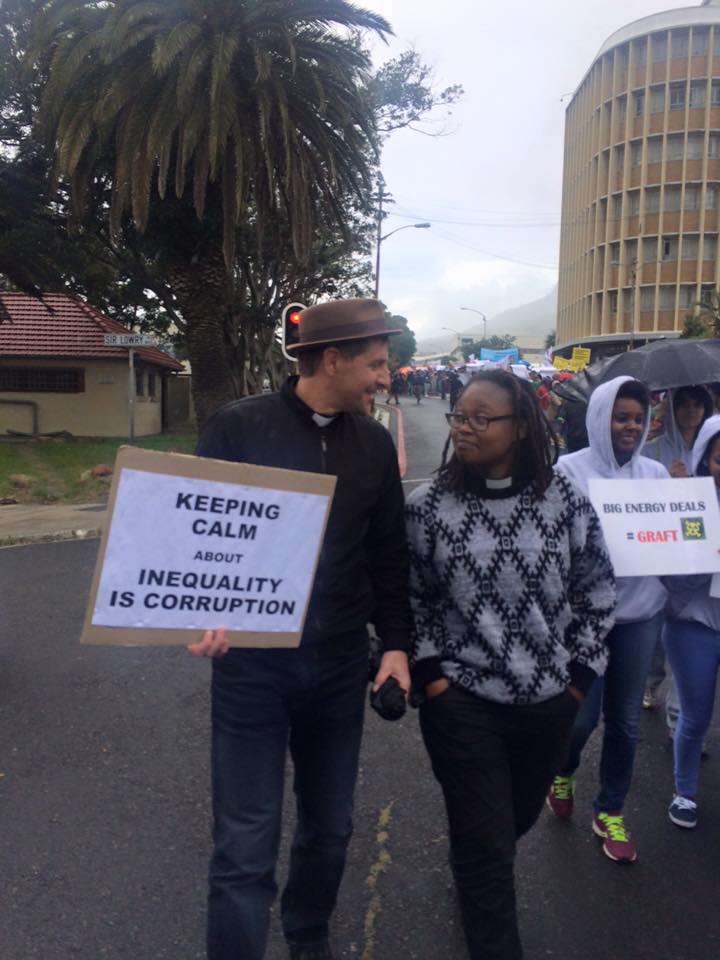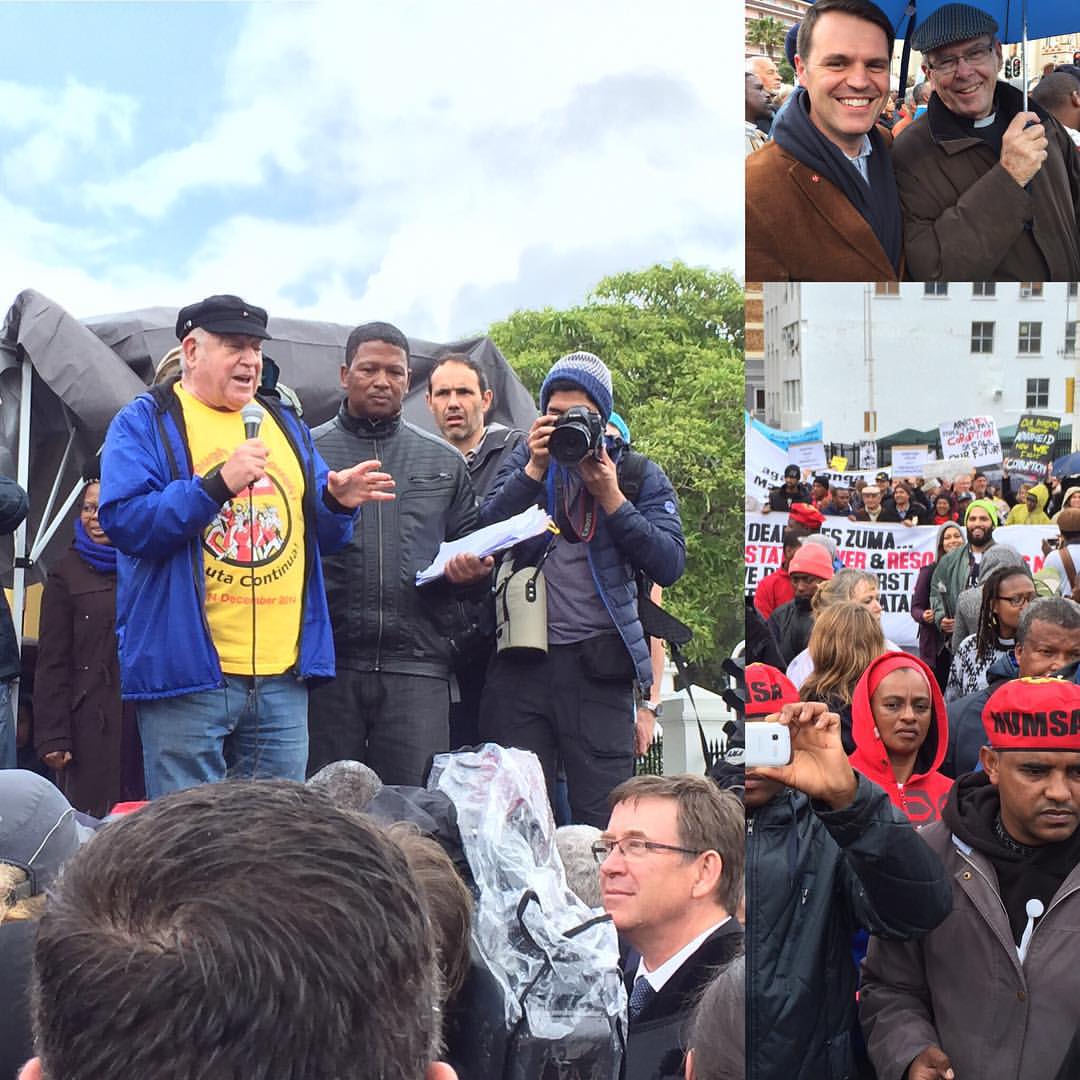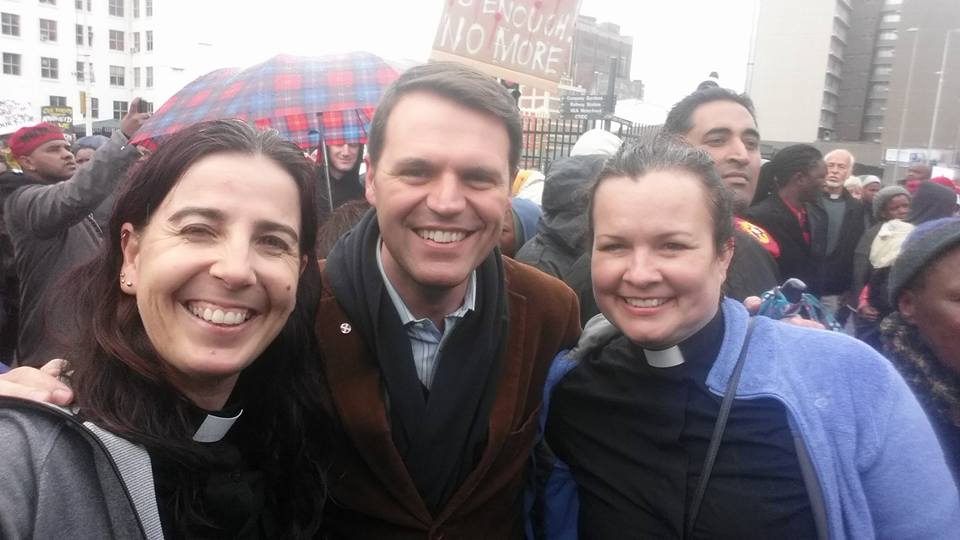South African social media has been abuzz with another catchy hashtag this week - #ZumaMustFall.
Thousands of South Africans reacted to President Jacob Zuma's shock announcement that he had axed a (relatively) trusted and responsible finance minister, Nhanhla Nene, and replaced him with a completely unknown small town mayor with no suitable experience or qualification for the post, other than patronage and loyalty to the President and his corrupt cronies (David van Rooyen).
It would seem from media reports that Mr Zuma decided to axe Mr Nene since he (Mr Nene) had refused to allow the treasury to approve a shady deal to replace Airbus planes for the beleaguered national airline carrier South African Airways (SAA). There is widespread speculation (including pictures and reports from persons close to the President) saying that Mr Zuma is involved in an inappropriate sexual relationship with the chairwoman of SAA, Dudu Myeni (who has been shown to be inept in her position and suggested to be corrupt - the deal in question seems run through with irregularities in the tender process, shady suppliers and middlemen getting payouts and financial kickbacks). It would seem that Ms Myeni allowed a contract with Airbus to expire by mistake (or through carelessness) with massive economic consequences for the national fiscus. When Nene said the nation would not pay for her mistake and it seems that Mr Zuma lost his cool and fired Mr Nene.
The repercussion of this decision - in a week where South Africa's economic rating was downgraded to just above Junk Status - was severe. Within hours the Rand fell to its lowest rate against the Dollar, Pound and Euro, since the early 1990's (over R22 to the pound, almost R16 to the Dollar and close to R17 to the Euro). The banking sector lost billions of Rands in value (as did other shares) as the currency was rapidly devalued. I read yesterday that Barclays Bank is now looking to sell it shares in ABSA bank in South Africa as a result. It is sure to have further direct and severe economic consequences. As with all such events the rich will loose value, but the poor will suffer most.
The reaction to Mr Zuma's clearly irrational and politically motivated decision was so sudden and strong that within a number of hours it seems he was engaged by political parties, business leaders and the labour movements - by the end of the weekend he had overturned his decision and appointed a previous minister of finance Mr Pravin Gordhan. Three ministers of finance in a single week. That must be a new record?
The Rand is now slowly recovering to its levels before this debacle (which was already a low value as investors have lost confidence in the South African economy, economic governance, labour unrest, and the openly corrupt national and business leadership).
Public sentiment - at least among those who control the media and have access to social media (which is still largely white, brown and black elites and the middle classes) was clear: #ZumaMustFall
The question is, whether the removal of Jacob Zuma is really a solution to the current social, political and economic crisis in South Africa?
I am always a little cautious of placing so much hope on dealing with an individual person. What is clear is that Mr Zuma is not solely to blame for the woes of South Africa. He clearly has support within the governing ANC party, so they should share some of the blame (and so should the population who keeps them power by their votes - which includes me). Moreover, the reality is that the challenges that we face in South Africa are not only political problems, they are social and economic in nature. Racial enmity, intolerance, ongoing racism and of course the massive challenges of poverty and economic inequality are huge concerns. In this regard the powerful and the privileged must share the blame for our current problems.
Craig Stewart spoke at the United Against Corruption public march in the Company Gardens in Cape Town yesterday. He made a very valid and important point:
Mr Zuma had used his privilege and power for personal gain and corruption. We have continually called for him to 'pay back the money' (R250 million used to upgrade his private home).
White South Africans (who hold both power and privilige as a result of Apartheid) continue to use their privilege and economic power to enrich themselves - Stewart said it was time for these elites to find ways of 'paying back the money' for the common good of all South Africans.
I think his analysis is very helpful. Indeed, we will not solve South Africa's current problems only be removing a corrupt political leader. We need to take responsibility for our part in it.
White South Africans will have to be courageous in finding ways to redistribute their privilege, power and wealth among all of South Africa's citizens. I wonder if we will have the courage to support a movement #WhitePriviligeMustFall - or whether those who hold power and privilege can only see it and address it in others?
Indeed, as Tshepo Lephakga, a friend and colleague from UNISA points out - the majority of the South African population are not immediately and directly impacted by fluctuations in currency exchange - the present discontent is a problem for the priviliged (who are predominatnly white). Most of the black South African poor suffer the slow violence of poverty every day - the value of the Rand will only impact their lives further down the line. Those who are most vocal are the ones who currently have wealth and fear loosing it. Here is Tshepo's post:
You can listen to Stewart's speech at the bottom of this post.
The further insight that shaped my thinking so far is that from Prof Steven Friedman the prominent political analyst.
Prof Friedman offered a very helpful insight, namely that in a very significant manner these recent events showed that perhaps Mr Zuma and his cronies are not as powerful as they thought they were. When they make irresponsible and bad decisions that have such visible negative effects democracy still functions - Mr Zuma was forced to undo his decision. Friedman further points out that what this shows is that there are (among the many factions in the ANC) clear fault lines between the rural political leaders and the urban political leaders. Friedman feels that it is far more important to have robust systems that can engage corruption and irresponsibility, than simply personalising politics (as is happening in the #ZumaMustFall movement) in the hope that removing one person will solve all of our problems. There still seems to be some power in our democratic system, as this last week's events showed. This is hopeful. We need to work to protect these freedoms.
So, this has been a tumultuous week!
I am thankful that the people of South Africa are finding their voice - the #FeesMustFall and the #ZumaMustFall movements (although very different) have shown that the general populace are finding ways of expressing their discontent with leaders (who should be servants) who are only out to enrich themselves at the expense of the poor.
It has also helped me to understand much more clearly that the vocal minority do not represent the daily concerns of the majority - this does not mean that the concerns of this vocal grouping are not valid, but merely that we need a more nuanced solution to the problem. That solution will involve not only addressing the corrupt other, but also addressing the privileged self.
Here is Craig Stewart's speech - I encourage you to watch it. It is very helpful.
Craig Stewart (Director of The Warehouse.org.za) stood in front of hundreds of protesters today and gave the most inspiring, challenging and godly address I have ever personally heard someone share at a public rally. Thank you Craig for being a brave and faithful leader who with Liesl, Zach, Eliza and Vivian Stewart are inspiring and leading us forwards and Miles Giljam (@unitedagainstcorruption) for his leadership in uniting the church and citizens to stand up and call for justice and a new leadership to achieve it #ZumaMustFall #SouthAfricaMustRise #TheChurchMustSpeak
Posted by Annie Kirke on Wednesday, 16 December 2015
Here is Steven Friedman's post:
 Friday, December 20, 2019 at 8:39AM
Friday, December 20, 2019 at 8:39AM 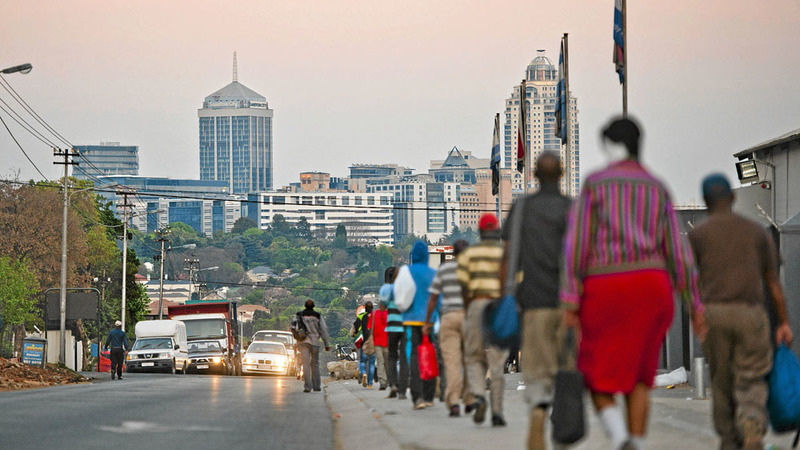 From Mail & GuardianWealth is an unkind master. It owns us, when we think we own it, and it haunts and taunts us, when we do not have it.
From Mail & GuardianWealth is an unkind master. It owns us, when we think we own it, and it haunts and taunts us, when we do not have it. 

